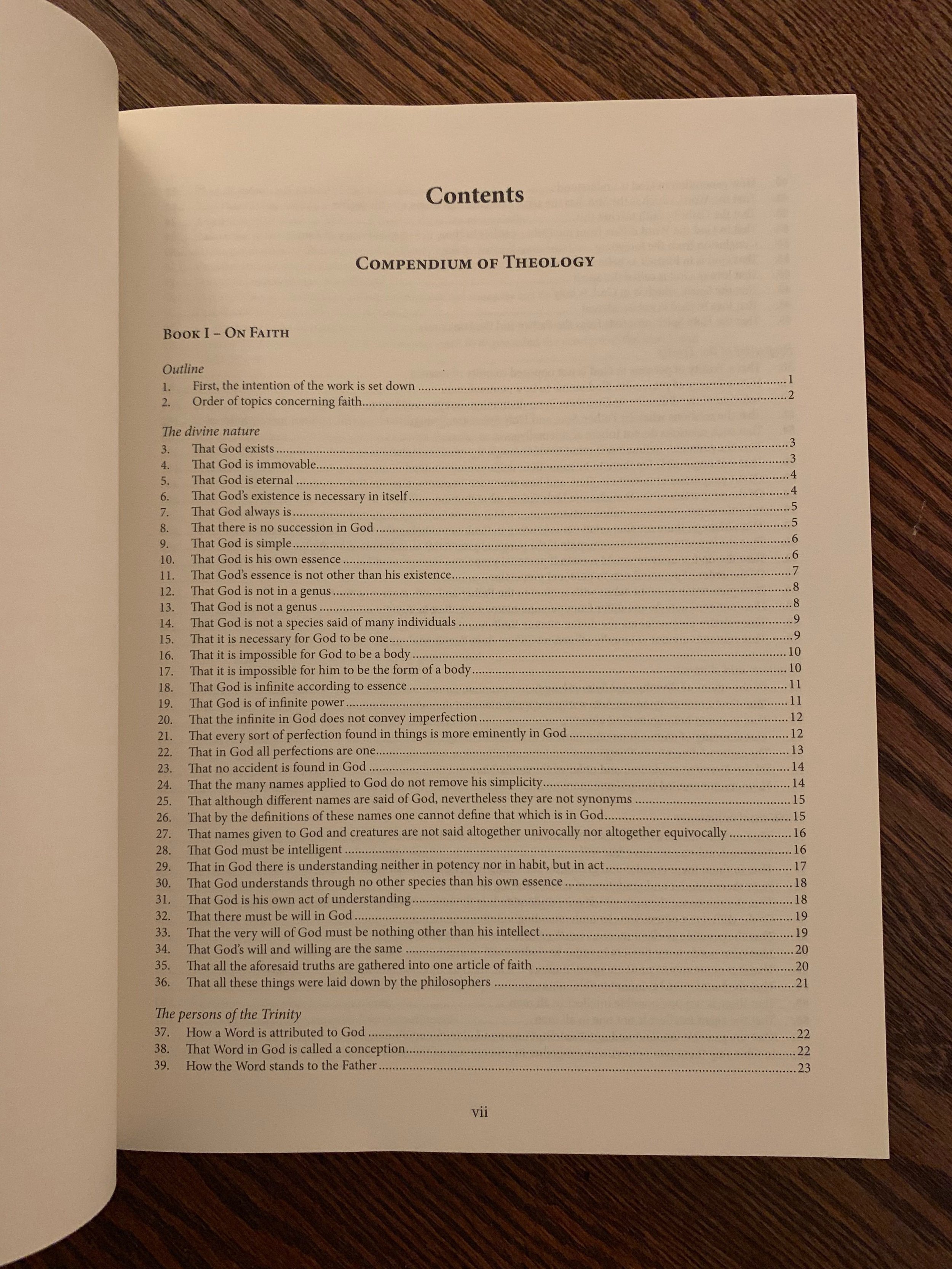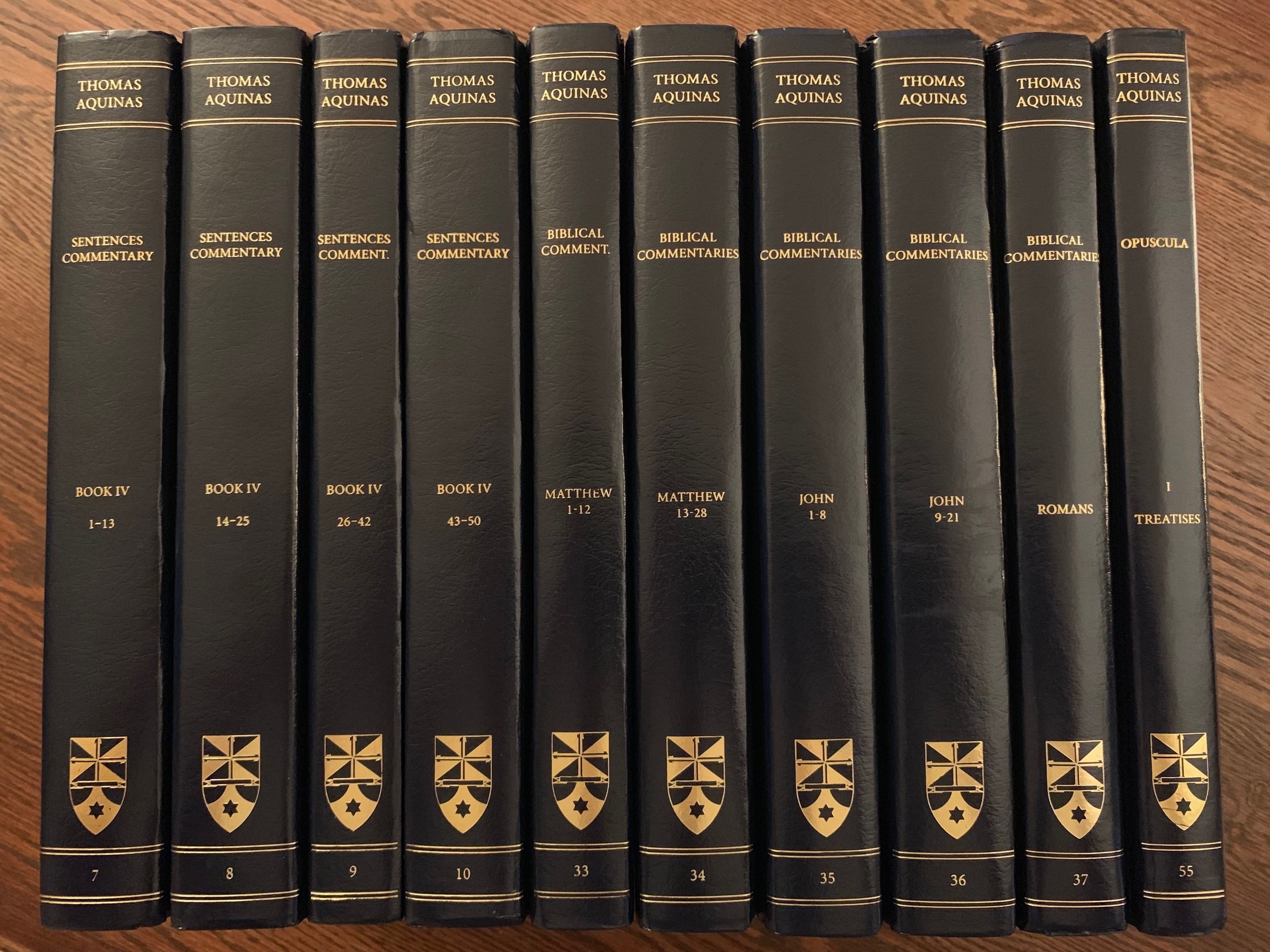Latin-English Opera Omnia of St. Thomas Aquinas
/Almost exactly one year ago, the St. Paul Center for Biblical Theology and Emmaus Academic (under the direction of Dr. Scott Hahn) teamed up with the Aquinas Institute, the organization behind the famous opera omnia project led by Dr. John Mortensen. The Thomistic Institute has for several years been working diligently at producing a single complete set of the writings of St. Thomas Aquinas, with Leonine Latin and English translation side-by-side throughout. This particular author recently received a free sample copy of volume number 55—”Opusculum I”—as a gift from the St. Paul Center for review. Of the same series, I already have Aquinas’s biblical commentaries on St. Paul’s letter to the Romans and the gospels of Matthew and John, plus the entire fourth book of his commentary on the Sentences of Peter Lombard.
These volumes are a handful, sizing at about 11.5 inches tall by 8.5 inches wide. They are bound very well and encased within a beautiful blue imitation-leather hardback. The pages feel appropriately thick and almost elegant, with eye-friendly font and dimensions. Finally, there is sufficient marginal space for annotation, especially at the top and bottom of the pages. All in all, this series is splendidly beautiful and easily becomes the envy of any bookshelf, especially after one has compiled a number of volumes.
The most significant aspect of this series, however, is what is found printed on the paper. Not only does this Opera Omnia series provide stunning side-by-side Latin and English of Aquinas’s texts, although that alone would be worthy of attention. No, instead, the real contribution of this series is twofold. First, and most importantly, the Leonine critical Latin edition is made easily accessible to Thomistic scholars in a printed format that will (most likely) fit on office and home bookshelves practically anywhere. This is a major improvement from the opera omnia series that are generally only found as oversized volumes in the reference sections of theological libraries, if they even have them. Second, and quite interestingly, the entirety of Aquinas’s works will be made available in English for the first time ever. It is true that the Aquinas Institute has been relying on several previous English translations to populate their series; however, there are still many works that previously have never been translated beyond a few snippets here and there. Most especially, I am thinking of Aquinas’s massive Commentary on Lombard’s Sentences, but even several of his biblical commentaries, his correspondences, and his lesser known treatises. Because of the availability of the Leonine texts and because of the wave of new English translations, this series marks a major milestone in Thomistic scholarship.
As one can see from the St. Paul Center website, there are only select series available for purchase. A fuller picture of the publication process for individual volumes still in the works can be found on the Aquinas Institute website. Additionally, they have made available many of the texts online at Aquinas.cc. Even though there are still several volumes yet to be published, once the entire series is complete, it will be well worth the wait. In the meantime, there is plenty to enjoy and to use until then!
- Reviewed by Brandon L. Wanless













